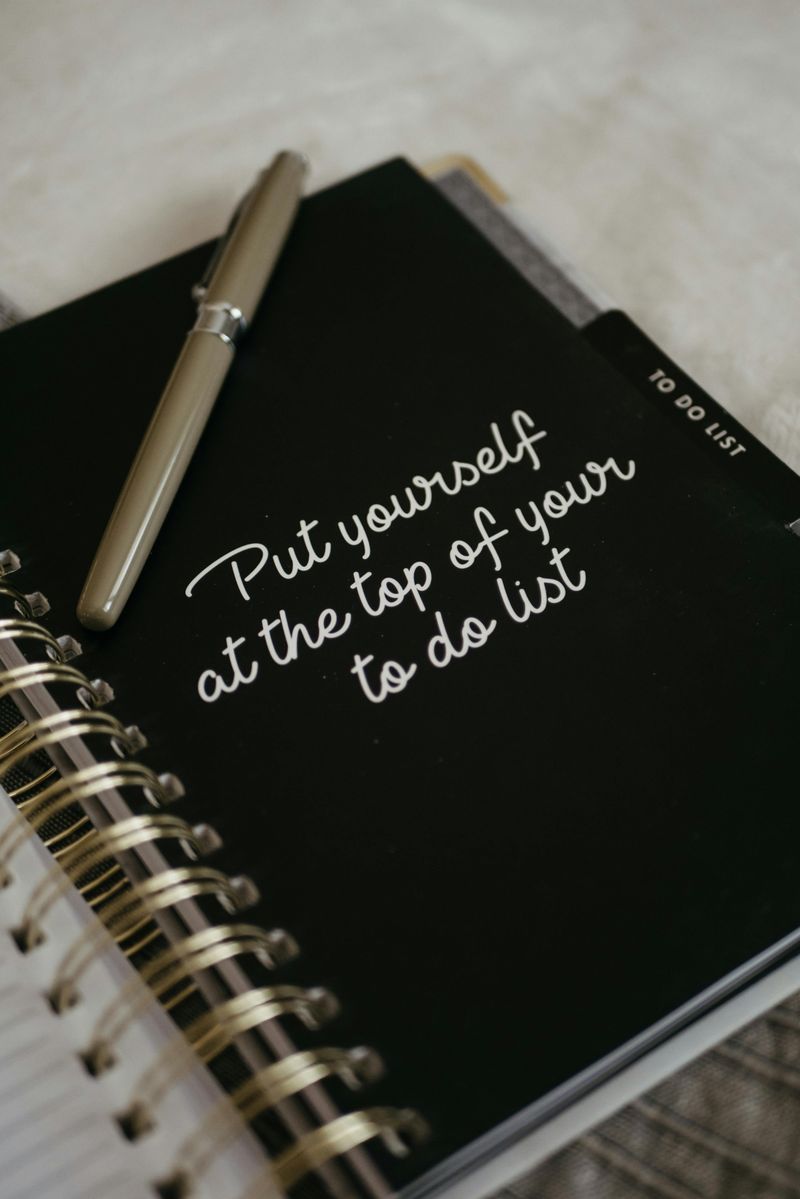12 Everyday Triggers That Raise Your Anxiety (And How to Defuse Them)

Anxiety doesn’t always come from big life changes or dramatic events. More often, it sneaks up in the middle of your everyday routine. Maybe it’s your buzzing phone, your overflowing inbox, or the fact that you skipped lunch again. These little triggers stack up, leaving you frazzled and wondering why you feel so on edge.
1. Checking Your Phone First Thing in the Morning

Rolling over and grabbing your phone before you’re even fully awake sets the tone for a chaotic day. News headlines scream negativity, emails demand your attention, and social media posts whisper, “you’re behind.” By the time you crawl out of bed, your brain is already racing.
Instead of letting the digital world dictate your mood, carve out a few minutes of peace in the morning.
Drink water, stretch, or even just sit quietly with your thoughts. If you absolutely can’t resist your phone, try using a “do not disturb” setting overnight so only the most important alerts come through. Giving your mind a chance to wake up without a flood of information is like gifting yourself a calmer start.
2. Caffeine Overload

That extra-large coffee may feel like the fuel you need to survive the morning, but caffeine has a sneaky side. Too much of it can make your heart race, your hands tremble, and your brain spin faster than you can keep up. It’s basically anxiety in a cup.
The trick isn’t cutting caffeine completely—it’s about moderation. Stick to one or two cups in the morning and switch to water or herbal tea after lunch. You’ll notice your energy feels steadier, and you won’t have the jittery crash later in the day.
Bonus tip: pair your coffee with a balanced breakfast so your body processes it more slowly. Suddenly, caffeine feels like an ally again, not your anxious enemy.
3. Cluttered Spaces

Walking into a messy room can make you feel like your life is equally out of control. Every pile of laundry, stack of papers, or crowded countertop silently screams at you, adding background stress you didn’t even realize was there.
Tackling clutter doesn’t have to be a marathon cleaning session. Pick one small area—like your nightstand or the kitchen sink—and clear it completely. The sense of accomplishment will encourage you to tackle another. Over time, you’ll notice your brain feels calmer in cleaner spaces.
Think of it as a gift to your future self: less chaos in your environment equals less chaos in your mind. Even ten minutes of tidying can reset your mood instantly.
4. Running Late

Few things spike your anxiety faster than realizing you’re behind schedule. Traffic lights seem longer, your pulse quickens, and you rehearse excuses in your head before you even arrive.
The panic of rushing can linger long after you’ve reached your destination. The solution is surprisingly simple: build in buffer time. If you know it takes 20 minutes to get somewhere, plan for 30.
Those extra minutes aren’t wasted—they’re peace insurance. You’ll move through your morning with less stress, and even if something unexpected pops up, you’ll still arrive without the frantic energy. Being early also gives you a moment to breathe, collect your thoughts, and walk into any situation feeling composed instead of frazzled.
5. Skipping Meals

When hunger strikes, your brain and body team up to throw a tantrum. Low blood sugar makes you irritable, unfocused, and prone to overthinking. What feels like anxiety may simply be your body begging for fuel.
Keeping healthy snacks on hand can make all the difference. A handful of nuts, yogurt, or fruit can stabilize your energy and prevent the dreaded afternoon crash. Prioritize balanced meals that include protein, fiber, and healthy fats—they’ll keep you satisfied longer.
Skipping meals doesn’t save time; it steals your focus and makes stress harder to manage. Treat eating like part of your self-care routine, because it is. A nourished body leads to a calmer mind.
6. Overcommitting

Saying “yes” to everything feels polite in the moment but quickly becomes a recipe for burnout. Before you know it, your schedule is packed tighter than a suitcase before vacation, and there’s no room left for rest. Anxiety thrives when your calendar is stuffed.
Learning to say “no” is one of the most powerful tools for protecting your peace. You don’t need to give long explanations—a simple “I can’t commit right now” is enough. Start by evaluating your energy before agreeing to new plans.
Remember, every “yes” to someone else is a potential “no” to yourself. By leaving breathing room in your schedule, you’ll show up more fully for the commitments that actually matter to you.
7. Constant Notifications

Your phone pings, your email dings, and suddenly you’re pulled in six directions at once. Each little alert may seem harmless, but together they keep your nervous system in a constant state of high alert. It’s exhausting, and it chips away at your focus.
One of the easiest fixes is turning off non-essential notifications. Do you really need an alert every time someone likes your photo? Probably not. Instead, check your apps and messages at set times during the day.
You’ll be amazed at how much calmer—and more productive—you feel when you’re not constantly interrupted. The world won’t fall apart if you reply to a text an hour later, but your sanity might just improve.
8. Negative Self-Talk

The voice inside your head can be your biggest cheerleader or your harshest critic. When it leans negative, every mistake feels bigger and every challenge feels impossible. That inner dialogue fuels anxiety by convincing you that you’re not enough.
Shifting your self-talk takes practice, but it’s worth it. When you catch yourself spiraling, pause and ask: “Would I say this to a friend?” Chances are, you wouldn’t. Replace criticism with kinder statements, or reframe mistakes as lessons. Over time, you’ll notice your inner voice sounding more supportive.
You don’t have to pretend everything is perfect—you just need to remind yourself that you’re capable of handling whatever comes your way.
9. Unfinished To-Do Lists

Staring at a mile-long list of unchecked boxes is overwhelming. Instead of motivating you, it can feel paralyzing—like no matter how hard you work, you’ll never get ahead. That looming sense of “too much to do” is a classic anxiety trap.
A smarter approach is to narrow your focus. Each morning, pick your top three priorities for the day. If you finish those, great—you can move on to the rest. If not, you still accomplished the most important tasks. This shift makes progress feel achievable instead of impossible. Plus, there’s something deeply satisfying about crossing things off.
Remember: productivity isn’t about doing everything; it’s about doing what matters most without drowning in the rest.
10. Comparing Yourself to Others

Scrolling through social media can feel like walking through a hall of mirrors—everyone looks flawless, successful, and way ahead of you. The constant comparison steals your joy and fuels anxiety, making you question if you’re doing enough.
The truth is, social media is a highlight reel, not real life. Behind every perfect vacation photo or career milestone is someone with their own struggles. Limiting screen time helps, but so does shifting your perspective.
Instead of measuring yourself against others, measure yourself against your past self. Celebrate progress, even if it’s small. Remember, you’re running your own race, and no amount of scrolling should convince you otherwise. Your timeline doesn’t have to match anyone else’s.
11. Lack of Sleep

Dragging yourself through the day after too little rest doesn’t just make you tired—it amplifies stress responses. Everything feels harder, patience runs thin, and small problems suddenly feel massive. Anxiety loves sleep-deprived brains.
The key is building a bedtime routine that signals your body it’s time to wind down. Dim the lights, put your phone away an hour before bed, and try relaxing activities like reading or journaling.
Going to bed and waking up at consistent times trains your body to expect rest. Quality sleep isn’t a luxury—it’s a necessity for your mental health. When you’re well-rested, you’ll handle stressors with more clarity and calmness.
12. Uncertain Situations

Not knowing what’s next—whether it’s about work, relationships, or even the weather—can leave you feeling unsettled. The human brain craves predictability, and when it doesn’t get it, anxiety happily fills in the blanks with worst-case scenarios.
While you can’t eliminate uncertainty, you can change how you respond to it. Focus on what’s within your control, like your daily routines or self-care practices.
Grounding techniques such as deep breathing, journaling, or even a quick walk can bring you back to the present moment. Remind yourself that uncertainty also holds possibility—not just problems. By accepting that some questions don’t have immediate answers, you free yourself from spiraling and make room for resilience.

Comments
Loading…